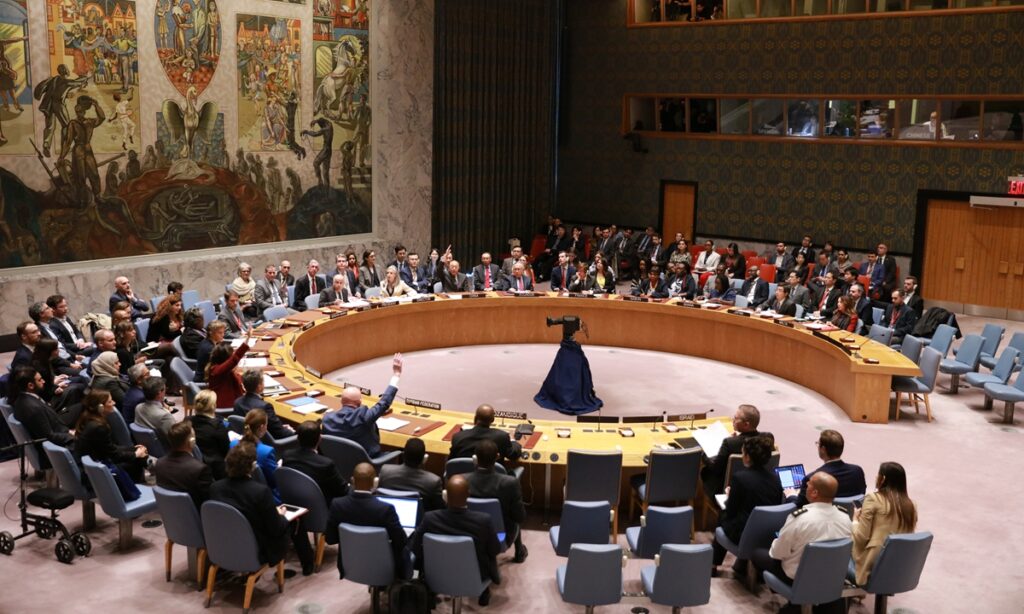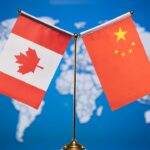China’s top diplomat Wang Yi will travel to New York to chair a UN Security Council high-level meeting on the Palestinian-Israeli issue on November 29, which is believed to be the latest effort by international community, including China to push for a cease-fire in Gaza. The fragile truce between Israel and Hamas entered its final day on Monday, with both sides hinting at the possibility of extending it to free more hostages. Analysts have also called for intensifying efforts to exert pressure to prolong the temporary pause in order to stop the worsening humanitarian crisis in Gaza.
On Monday, the Chinese Foreign Ministry announced that “As the rotating president of the UN Security Council for November, China will hold a Security Council high-level meeting on the Palestinian-Israeli issue on November 29. Member of the Political Bureau of the CPC Central Committee and Foreign Minister Wang Yi will travel to New York to chair the meeting.”
Chinese Foreign Ministry spokesperson Wang Wenbin said on Monday that “China hopes that, by holding this Security Council high-level meeting on the Palestinian-Israeli issue, we can do our part by bringing parties together for in-depth exchanges to build up consensus and take further concrete steps to alleviate the humanitarian crisis in Gaza, realize cease-fire and cessation of hostilities, protect civilians and ultimately promote the comprehensive, just and lasting settlement of the Palestinian question through the two-state solution.”
A fourth exchange is expected on Monday, during which a total of 50 hostages and 150 Palestinian prisoners are to be freed, most of whom are women and minors. On Sunday, Hamas freed 17 hostages held in Gaza, including a 4-year-old American girl, while Israel released 39 Palestinian prisoners. Three more Thai nationals were released. Separately, Hamas said it released a Russian hostage “in response to the efforts of Russian President Vladimir Putin,” according to media reports, according to media reports.
The release of the hostages was a significant part of the first halt in fighting since Hamas’ sudden attack on October 7.
Wang Wenbin said on Monday that “Since Israel and Hamas reached the cease-fire agreement, both sides have released three groups of detainees. Steps towards peace, however small, should be encouraged. Difficulties in protecting civilians, however daunting, must be overcome with every possible effort. This round of Palestinian-Israeli conflict has continued for more than 50 days, causing great casualties and serious humanitarian disasters.”
“As we have repeatedly stressed, violence does not bring true security and the use of force will not create lasting peace. China welcomes all efforts that are conducive to bringing about cease-fire and deescalating the situation. We urge parties to the conflict to earnestly implement UN Security Council Resolution 2712 and the resolution adopted by the UN General Assembly at its emergency special session, jointly and effectively implement the temporary cease-fire agreement and enable it to be extended, and realize a true and lasting cease-fire,” the spokesperson said.
Seeking to extend truce
The upcoming UN Security Council high-level meeting is believed by analysts to be the latest efforts made by China and the international community in promoting a cease-fire of the Palestine-Israel conflict to allow more humanitarian aid to enter into Gaza. More countries are working to extend the four-day truce, which began on Friday. Qatar, Egypt and the United States are also pressing for the truce to be extended beyond Monday.
Given the current information released by all relevant parties, a temporary extension of the truce is possible, as both sides have realized they are falling into a vicious cycle as the conflict continues, Tian Wenlin, a research fellow at the China Institutes of Contemporary International Relations, told the Global Times.
According to media reports, Hamas for the first time said it would seek to extend the deal by looking to release a larger number of hostages. Israeli Prime Minister Benjamin Netanyahu said on Sunday that he had spoken to US President Joe Biden about the hostage release and would welcome extending a temporary truce if it meant that on every additional day 10 captives would be freed.
Hamas suggested extending a truce to echo international calls for a cease-fire and also to kick the ball to the Israeli side, as the Netanyahu government is facing more pressure domestically and internationally, Liu Zhongmin, a professor at the Middle East Studies Institute of Shanghai International Studies University, told the Global Times.
Israel is currently facing a dilemma, as it also needs to prolong the truce in the face of mounting pressure from the families of hostages, and its economy has also been affected by the conflict, said Liu.
Thousands of people have reportedly taken to the streets in Tel Aviv, Israel as pressure mounted on Prime Minister Netanyahu on November 25 over his government’s lack of preparedness for the October 7 attacks and called for the release of all hostages. Moreover, according to a report by global ratings agency Moody’s based on an initial estimate by the Israeli Finance Ministry, the war with Hamas is costing Israel at least $269 million per day and is poised to take a bigger toll on the country’s economy than previous conflicts.
The Netanyahu government is standing on thin ice, Tian noted, pointing out that it had adopted a tough stance at the start of the conflict, pushing for military action into Gaza in an effort to eliminate Hamas permanently. However, as time has gone on, its military victories have been fewer than anticipated, international opposition has grown stronger than expected, and the damage to its reputation abroad has become more severe than before. Because of all of this, Netanyahu is now more hesitant to stick to his strong position.
However, it is still impossible for Israel to agree to turn the temporary truce into a permanent one, as its military goal has not been accomplished, and ending the conflict at this point will be of no benefit to its endgame negotiations with other parties, some analysts believed.
Netanyahu said on Sunday that he also told Biden that Israel would resume its offensive “with all of our might” once the truce expires, according to media reports.
Liu said that Israel was caught in a dilemma as it lacked a clear strategy on Gaza and there was growing distance between the US and Israel on many issues, especially on post-conflict governance.
The war between Israel and Palestine has developed to a point where military conflict has occurred alongside diplomatic and political struggles, with the latter being more crucial, said Liu.
Some analysts also noted that while international calls for an overall cease-fire are growing, the pressure on Israel is mounting and the US and the West have also been urged to exert more pressure to bring an end to the war.




